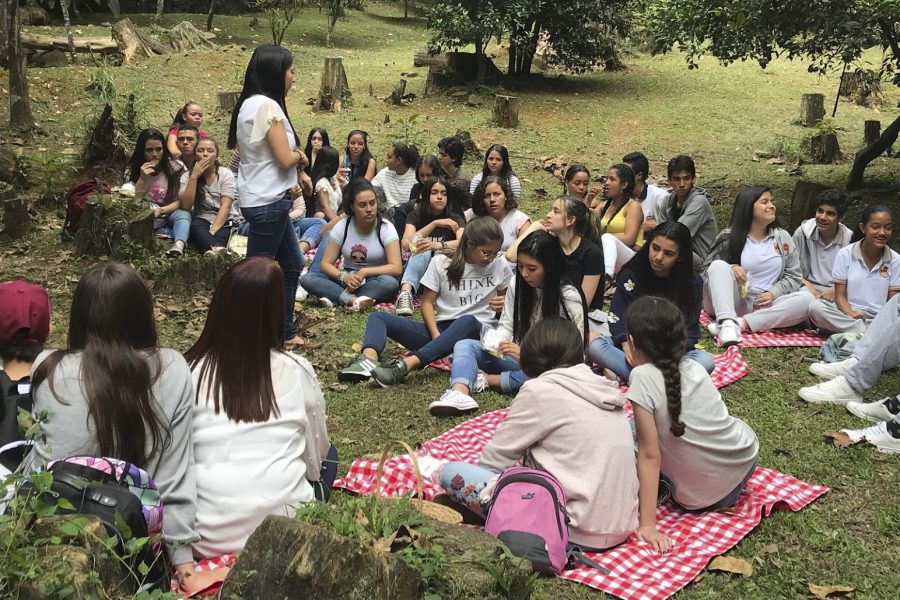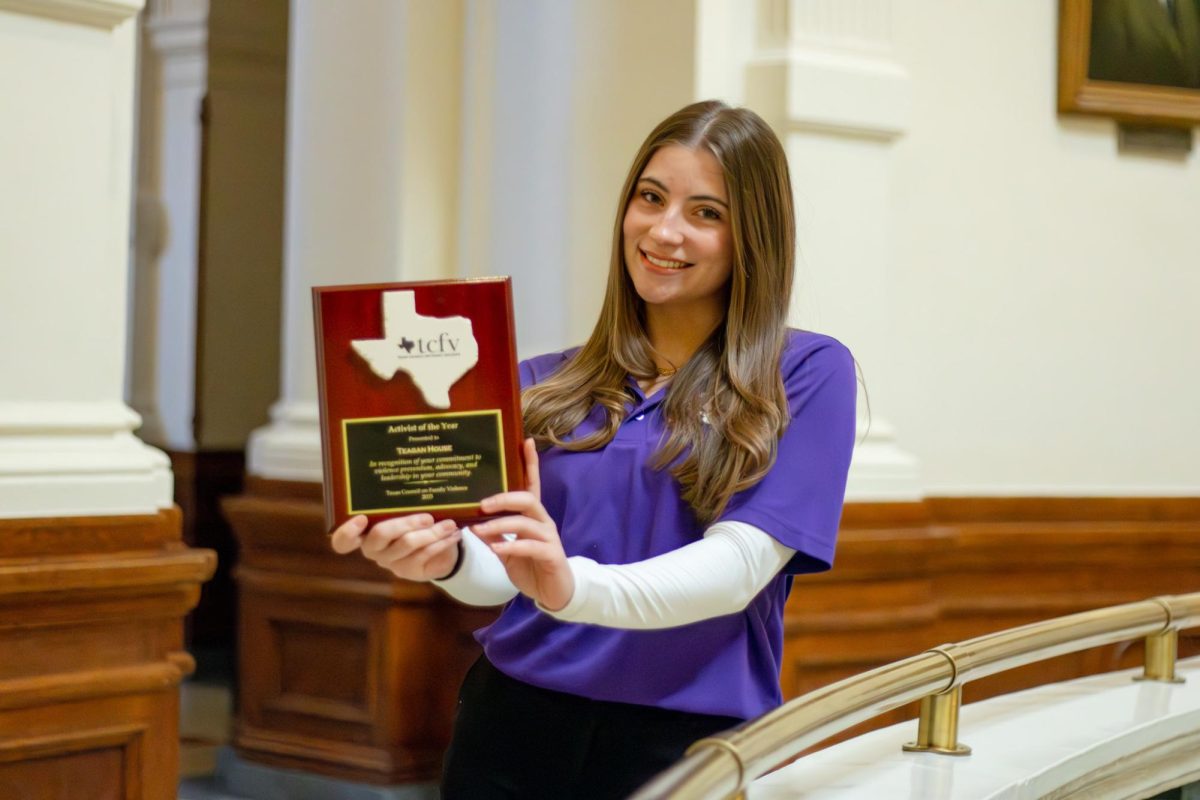By discussing case studies from engineered drones that clean up ocean trash to financially accessible prosthetics, a UT-based nonprofit helped Colombian students recognize their ability to pursue business for social good during a weeklong program.
The Exponentialists work with high school students in Austin from various background and resources to help them pursue their business ideas through a mentorship program.
“We’re there to give (the students) more information and more knowledge in the field of business and help lead them through a business plan,” said Kevin LePage, podcast director and business honors junior.
This year, The Exponentialists took their program abroad to introduce children in Medellin, Colombia, to the world of entrepreneurship and teach the students about how they could make it a reality for themselves.
“We aim to introduce entrepreneurship as a viable career path to these students,” said Rahul Das, business honors junior and The Exponentialists COO. “We want to make (them) self-sufficient and self-sustainable.”
In preparation for Colombia, the team worked to adapt the business curriculum they had in place for Austin students to better fit the 56 Colombian students living in a different environment more than 2,000 miles away. They called the program Los Exponencialistas, a nod to the similarities between its goals and the original program’s, and also an acknowledgment of the cultural differences.
“We have curriculum here in Austin, but it is very specialized,” said Clarisa Bracamontes, Los Exponencialistas director and business administration sophomore. “So, we planned the curriculum in Spanish from scratch.”
After arriving in Colombia, the team got a closer look at the student’s interests and altered the program day-by-day based on how students responded.
“The first day we started talking about social entrepreneurship, and the kids were just blank. So we realized right there and then that it was not what they needed,” Bracamontes said. “We asked them what they were actually interested in learning and right there we just changed the entire curriculum.”
At the end of the first day, the team spent the evening at a coffee shop planning and rewriting all of the curriculum for the following days. They wanted the students to get the most out of their learning experience, Bracamontes said.
In the following days, the team focused on relating the topics back to the students and their community in Medellin.
While showing a case study on Airbnb, students in the camp had trouble identifying with the story because it was not a prominent company in their lives. Many had never heard of it.
The team consulted with a local volunteer to bring in an example that the students could relate to.
“We played the video about (a Colombian entrepreneur) in Spanish and Medellin was highlighted in that video,” Bracamontes said. “So they were able to see their city and someone that spoke their language.”
By the end, the students gained a better understanding of how they could realistically impact their communities through entrepreneurship and were eager to learn more, Bracamontes said.
The Exponentialists are planning to return to this community and create an extension of the camp that partners students with local mentors who can guide them through a business plan.
Ultimately, their main goal is to unlock the potential that these students already have, Bracamontes said.
“Our job at that point is not to have the kids learn about revenues and profits,” Bracamontes said. “It’s just to inspire (the students) to change their communities.”





















